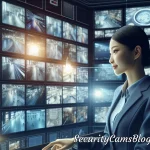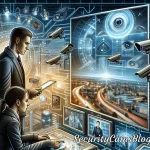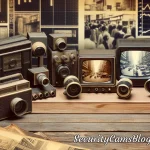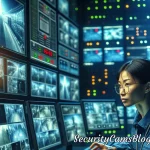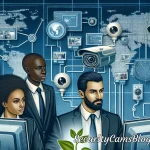Introduction
Video surveillance plays a pivotal role in legal cases, serving as both a shield and a sword in the courtroom. As technology advances, the use of video evidence has become more prevalent, offering clear insights into incidents that written testimonies and physical evidence sometimes cannot. This article explores the multifaceted impact of video surveillance on legal proceedings.
The Evolution of Video Surveillance in Legal Cases
The integration of video surveillance into legal practices has significantly evolved, transitioning from grainy, hard-to-decipher footage to high-definition recordings that can capture the slightest detail. This progression has enhanced the reliability of video evidence in court, often providing indisputable facts that can lead to swift justice.
The Legal Framework Governing Video Evidence
Understanding the legal framework that governs the admissibility of video evidence is crucial for both legal professionals and the general public. This framework ensures that the video surveillance used in court respects privacy laws and adheres to standards of fairness and accuracy.
Admissibility Standards for Video Evidence
To be admitted in court, video evidence must pass certain admissibility standards. It must be relevant, authentic, and obtained legally without violating privacy rights. The process of establishing these criteria often involves meticulous scrutiny by legal experts.
Privacy Concerns and Video Surveillance
While video surveillance is a powerful tool in legal cases, it also raises significant privacy concerns. The balance between leveraging video evidence and respecting individuals’ privacy rights is a delicate one, requiring careful legal navigation.
Impact of Video Surveillance on Civil Litigation
In the realm of civil litigation, video surveillance can dramatically alter the trajectory of a case. It can offer concrete proof that supports claims or defenses, turning the tide in disputes ranging from personal injury to property damage.
Role in Insurance Claims
Video surveillance has a profound role in insurance claims, providing verifiable evidence that can confirm or dispute claims made by policyholders or insurers. This has streamlined the claims process, making it more transparent and equitable.
Use in Workplace Disputes
Workplace disputes often benefit from video surveillance, which can offer clear insights into incidents of harassment, discrimination, or wrongful termination. This evidence is pivotal in establishing the truth and ensuring justice is served.
Contribution to Property Dispute Resolutions
Property disputes also see the value of video surveillance, where footage can clearly delineate boundaries, document trespassing, or validate claims of damage or theft. This tangible evidence can expedite resolutions and mitigate prolonged legal battles.
Video Surveillance in Criminal Investigations
The use of video surveillance in criminal investigations has transformed the way law enforcement agencies gather evidence, solve crimes, and prosecute offenders. It has become an indispensable tool in the fight against crime, aiding in everything from identification to establishing timelines.
The Legal Importance of Video Surveillance Evidence
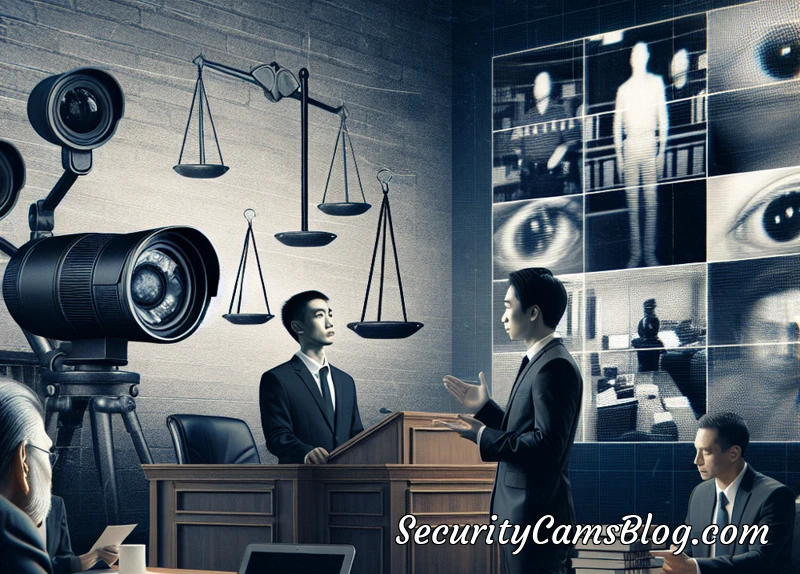
The legal importance of video surveillance evidence cannot be overstated. It often serves as a cornerstone in both prosecuting and defending cases, offering a level of objectivity that is hard to dispute.
Covert Video Surveillance: A Legal Grey Area
While video surveillance is widely accepted, covert surveillance occupies a legal grey area. The legality of covert operations hinges on various factors, including consent and the expectation of privacy, making it a complex issue.
Navigating the Legality of Covert Surveillance
Understanding the nuances of covert video surveillance legality is essential for legal practitioners. This knowledge ensures that evidence gathered covertly can be used in court without infringing on privacy rights or ethical standards.
Ethical Considerations in Covert Surveillance
Covert surveillance also raises ethical considerations. The morality of secretly recording individuals, even in the pursuit of justice, is a topic of ongoing debate within the legal community.
Impact on Privacy Rights
The impact of covert surveillance on privacy rights is profound. As such, courts are tasked with carefully weighing the benefits of this evidence against the potential infringement of individual privacy.
Challenges in Using Video Surveillance as Evidence
Despite its advantages, using video surveillance as evidence is not without challenges. Issues of quality, tampering, and context can complicate its admissibility and effectiveness in legal proceedings.
Future Trends in Video Surveillance and Legal Cases
As technology continues to advance, so too will the capabilities and applications of video surveillance in legal cases. Emerging technologies such as facial recognition and AI-enhanced analysis promise to further revolutionize this field.
The Role of Legal Professionals in Handling Video Evidence
Legal professionals play a crucial role in handling video evidence, from ensuring its proper collection and storage to navigating its presentation and interpretation in court. Their expertise is vital in leveraging this evidence to its full potential.
Conclusion
Video surveillance has become an indispensable tool in the legal arena, offering unparalleled insights and evidence in a wide range of cases. As technology advances, its role is only set to increase, promising a future where justice is served with even greater accuracy and efficiency. However, as we embrace these advancements, it’s imperative to balance the power of video surveillance with the ethical and legal considerations it entails, ensuring that the pursuit of justice always respects the rights and privacy of individuals.


